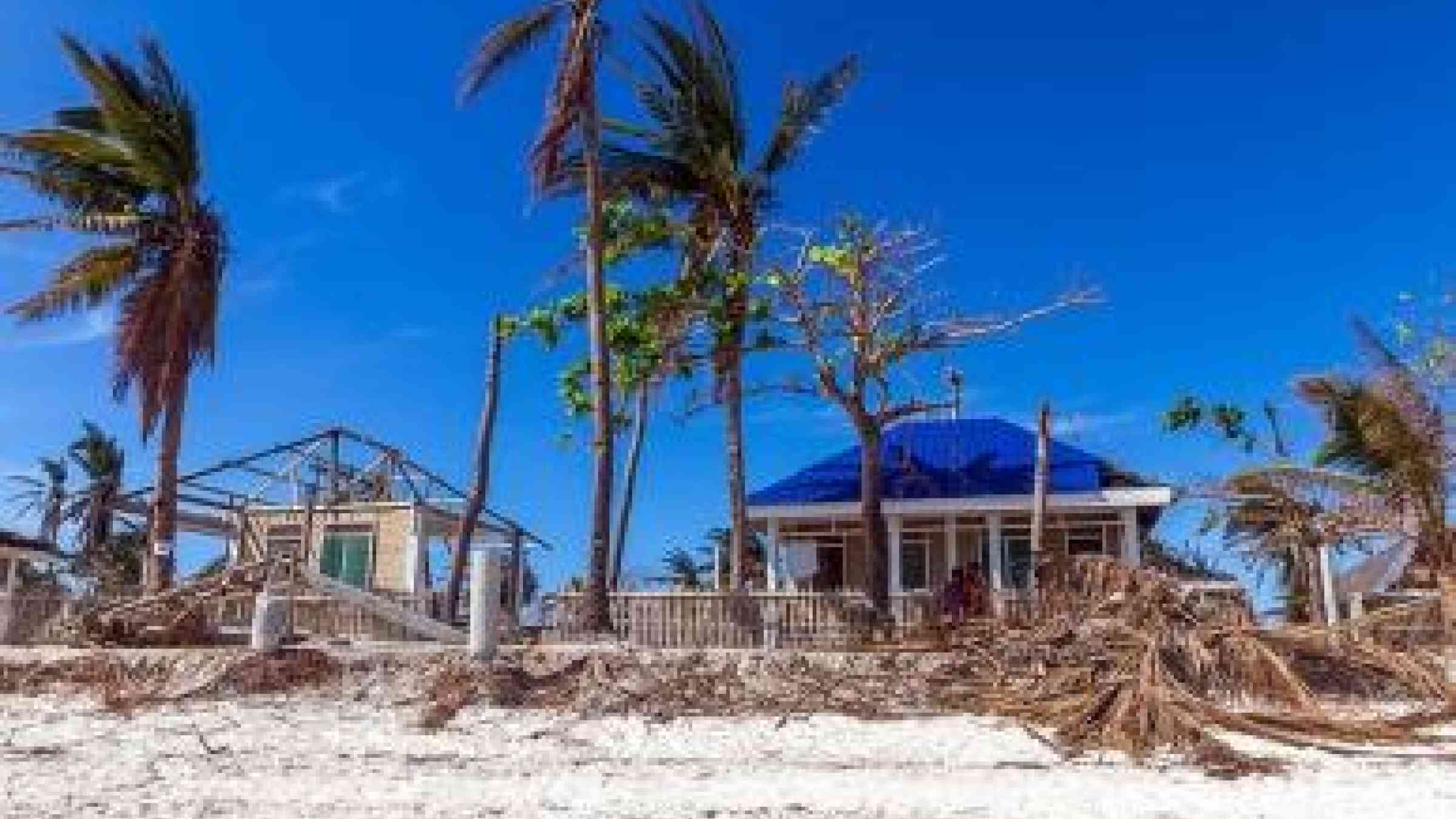Philippines: Australia, UNDP support climate and disaster risk reduction and management in Typhoon Yolanda-affected areas

Manila, Philippines — As the Philippines moves forward on the road to recovery after Typhoon Yolanda, the Australian Government and the United Nations Development Programme (UNDP) announced a contribution of Php172 million (A$4.3 million) to the Australian Government-UNDP-Climate Change Commission partnership on disaster risk reduction and management in areas affected by Typhoon Yolanda through the Resilience and Preparedness towards Inclusive Development (RAPID) Programme. The announcement was made at the helm of two milestone events—the hosting of the Philippines of the Asia-Europe Meeting (ASEM) Manila Conference on Disaster Risk Reduction and Management on June 4-6, and the celebration of the United Nation’s World Environment Day on June 5.
“The grant funding is very timely as the Commission extends its technical assistance to Yolanda-affected communities this 2014,” says CCC Vice Chairperson, Secretary Lucille Sering.
“In consonance with the theme of ASEM Manila Conference, the way forward for all of us is to shift our paradigm by working closely with communities and involving them in the process so they are empowered to understand their vulnerabilities and are made better equipped to take responsibility in managing their risks” Secretary Sering added.
The RAPID Programme will be implemented in 12 local government units (LGUs) along the coastline of Eastern Visayas. It builds on the work done by the Climate Change Commission and its partners under the Project Climate Twin Phoenix and is designed to capacitate local governments to come up with better plans, policies, and regulatory measures that will enable them to cope with climate change and disasters which are projected to increase in intensity and frequency due to climate change.
“As the United Nations is also set to celebrate World Environment Day, the roll-out of the RAPID Programme is a good example of how government can undertake interventions that take into account climate risks and climate vulnerability in the long-term recovery of areas affected by extreme weather events,” says Maurice Dewulf, UNDP Country Director.
The RAPID Programme targets coastal communities of San Pedro and San Pablo Bay which were identified to be vulnerable to impacts of climate change like sea level rise, and extreme weather events such as storm surges and floods. Partner local governments include Tacloban City, seven municipalities in Leyte Province, and four municipalities in Western and Eastern Samar provinces; which covers about 300 barangays and 90,000 households.
Benefitting from the knowledge acquired under Project Climate Twin Phoenix; a partnership among the Australian Government, UNDP and CCC; the RAPID Programme will implement various activities such as the conduct of intensive vulnerability assessment, formulation and testing of local contingency plans and early warning systems, and training of local partners and community leaders to build their capacities to respond to and manage their own risks. As an adaptation strategy, it will also push for the promotion of improved management of coastal resources as critical sources of livelihood opportunities and protective services for affected communities.
“The RAPID Programme is part of the comprehensive package of assistance of the Australian Government to support the Philippine Government’s efforts for the recovery and rehabilitation of areas affected by Typhoon Yolanda. The Australian government is very positive that through our support to CCC and with assistance from UNDP, the RAPID Programme will be able to make a real difference in helping communities better understand their risks, reduce their vulnerabilities, and, ultimately, regain their resilience”, says Bill Tweddell, the Australian Ambassador to the Philippines.
On November 2013, Typhoon Yolanda wreaked havoc in Eastern Visayas and left almost 4 million people homeless and damaged close to P89.6 billion worth of property and infrastructure. Six months after the massive destruction brought by the typhoon, thousands of families in the affected areas have yet to get back on their feet and recover their livelihoods amidst a worsening environmental situation.